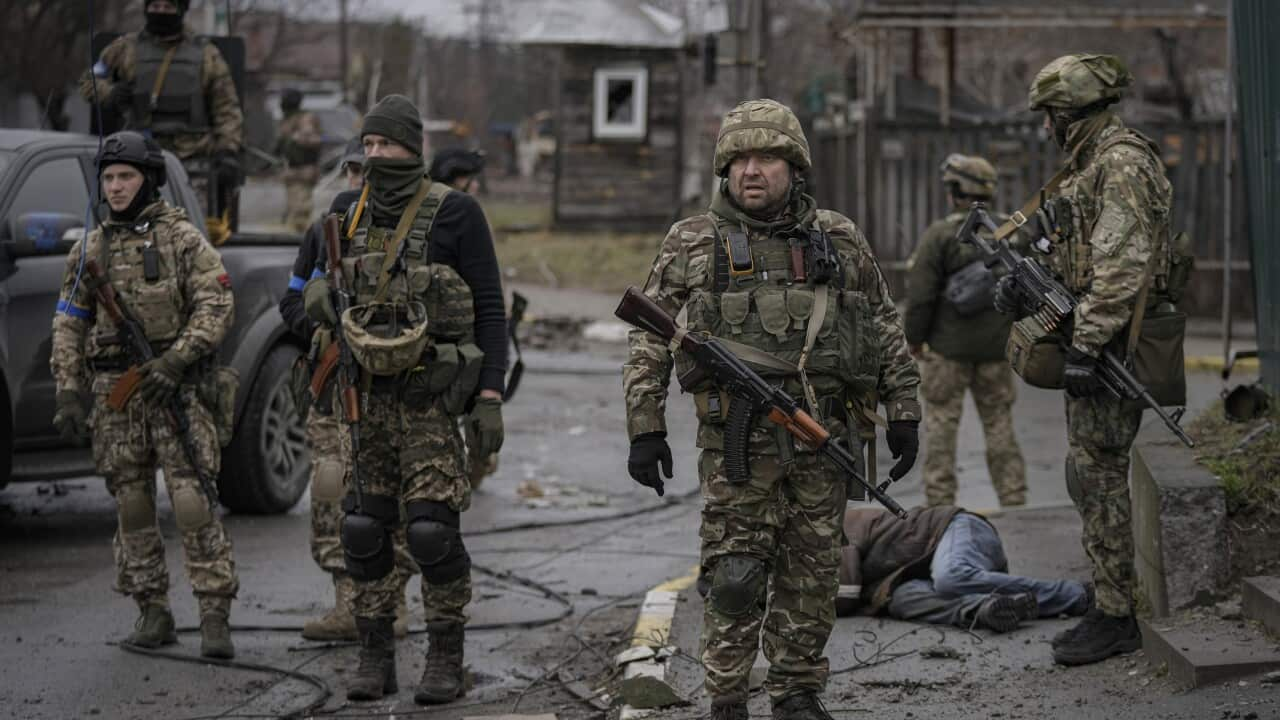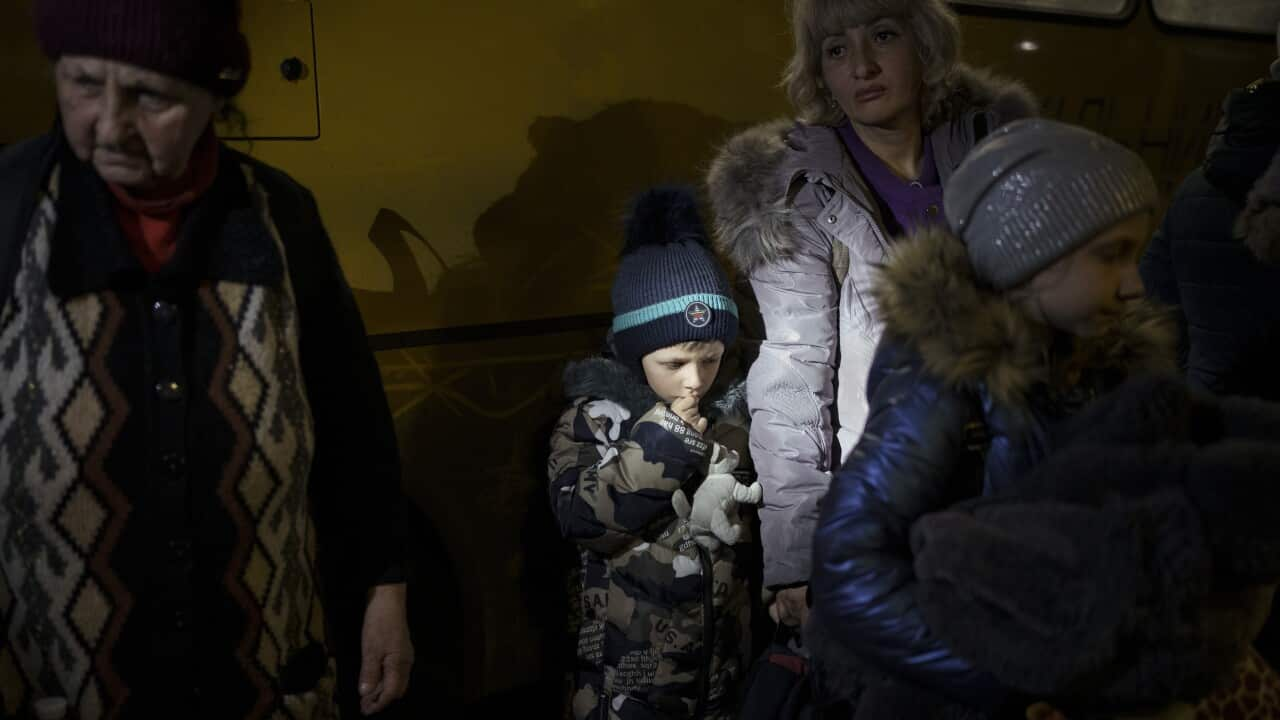CONTENT WARNING: This article contains graphic content and may be distressing to some readers
Dead civilians still lay scattered over the streets of the Ukrainian country town of Bucha, three days after the invading Russian army on Kyiv to the southeast.
The smell of explosives still hung in the cold, dank air, mingling with the stench of death.
Sixty-six-year-old Vasily, who gave no surname, looked at the sprawled remains of more than a dozen civilians dotted along the road outside his house, his face disfigured with grief.
Residents said they had been killed by the Russian troops during their month-long occupation.
To Mr Vasily's left, one man lay against a grass verge next to his bicycle, his face sallow and eyes sunken. Another lay in the middle of the road, a few metres from his front door. Vasily said it was his son's godfather, a lifelong friend.
Bucha's still-unburied dead wore no uniforms. They were civilians with bikes, their stiff hands still gripping bags of shopping. Some had clearly been dead for many days, if not weeks.

Bodies of civilians lie scattered on a street in Bucha, northwest of Kyiv, as Ukraine says Russian forces are making a "rapid retreat" from northern areas around Kyiv on 2 April, 2022. Source: Getty / RONALDO SCHEMIDT, via AFP
For the most part, they were whole, and it was unclear whether they had been killed by shrapnel, a blast or a bullet - but one had the top of his head missing.
"The bastards!" Mr Vasily said, weeping with rage in a thick coat and woollen hat. "I’m sorry. The tank behind me was shooting. Dogs!"
"We were sitting in the cellar for two weeks. There was food but no light, no heating to warm up. "We put the water on candles to warm it ... We slept in felt boots."

A boy looks at a destroyed Russian tank after recent battles in Bucha, close to Kyiv on 1 April 2022. Credit: AAP
Open grave
Local officials gave Reuters reporters access to the area, and a policeman led the way through streets now patrolled by Ukrainian tanks to the road where the bodies lay.
It was not clear why they had not yet been buried.
Mayor Anatoliy Fedoruk said more than 300 residents of the town had been killed, and a mass grave at one church ground was still open, with hands and feet poking through the red clay heaped on top.
Several streets were strewn with the mangled wrecks of burned-out Russian tanks and armoured vehicles. Unexploded rockets lay on the road and, in one spot, an unexploded mortar shell poked out of the tarmac.
A column of Ukrainian tanks patrolled, flying blue and yellow national flags. One resident who had survived the ordeal hugged a soldier, and gave the military battle-cry: "Glory to Ukraine, glory to the heroes!"
'We don't want them to come back'
Mariya Zhelezova, 74, worked as a cleaner at an airplane factory whose poor health stopped her leaving before the Russians came.
Walking with her 50-year-old daughter Iryna, she tearfully recalled brushes with death.
"The first time, I went out of the room and a bullet broke the glass, the window, and got stuck in the dresser," she said. "The second time, shattered glass almost got into my leg.

A woman in Bucha holds food items she received after a convoy of military and aid vehicles arrived on 2 April 2022. Credit: AAP
She removed a white cloth armband that she said residents had been ordered to wear.
"We don’t want them to come back," she said. "I had a dream today - that they left, and didn’t come back."
The Kremlin and the Russian defence ministry in Moscow did not immediately reply to requests for comment.











